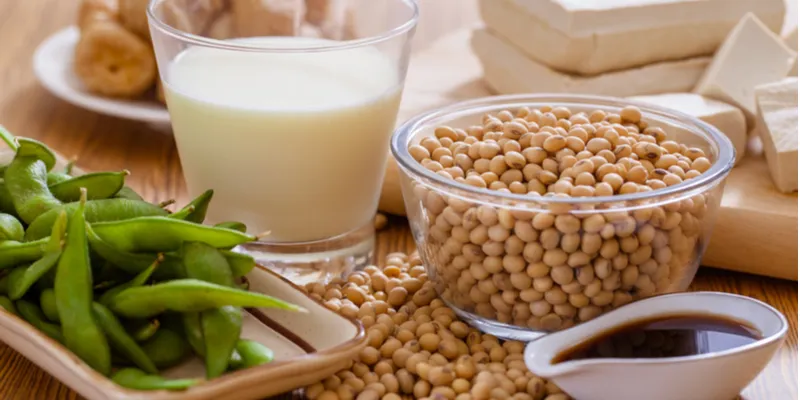You are what you eat: Watch out for inflammation from these foods
Did you know that certain foods can cause inflammation in the body? Here are the foods to avoid if you feel uncomfortable most of the time and suffer from chronic inflammation...
You might be hearing the word “inflammation” a lot these days, especially due to the buzz of many diseases in the air, but what exactly is inflammation? Let me explain what it is…
The ancient Romans described inflammation as having four components which were heat, redness, swelling and pain, all of which are due to increased blood supply. You can see some of this when you fall down and get hurt, but you cannot see them if they are happening deep within your body.
That hidden reaction is what is called inflammation, which does not shut off as it is supposed to, but remains persistent and prolonged. It becomes the reason for developing almost every symptom and condition that you might face, and therefore, it is critical to find ways to shut off the inflammation.
Foods play a pivotal role in chronic inflammation, and this becomes a key area where you can make a difference. It is important to get empowered with the knowledge you need to attack chronic inflammation deep within.
Here is a lowdown of the top ten inflammatory foods that you should watch out for ….
Refined sugar

Reduce refined sugar
This must come as no surprise, but sugar plays a deeply detrimental role on your body’s immune system. For five to six hours after eating any form of sugar, your white blood cells are reduced in numbers and in potency, making you vulnerable to be exposed to infection and developing inflammation.
Excess sugar can also compete with your body’s utilisation of Vitamin C, which is your immune system’s star. To reduce inflammation, begin by cutting sugar.
Dairy

Many people cannot tolerate dairy
While this question is a constant debate everywhere, the fact is that most people lose the ability to digest dairy at some point.
When your body is unable to digest this food, it causes congestion in the liver, as well as an immune reaction, where your body’s immune system thinks that it needs to battle with a pathogen. This keeps you in a state of chronic inflammation. Impaired digestion also challenges your immune system simply because 70% of your body’s immune system is situated within your gut.
Gluten

Opt for gluten-free foods if you suffer from inflammation
The very first problem is that most of us have insufficient enzymes and stomach acid to break down this complex molecule. Here begins a wide range of digestive problems from bloating to indigestion to constipation. Gluten increases a protein called Zonulin which is responsible for wedging itself in the tight gap junction of the small intestine villi and creates gaps there, leading to intestine permeability.
What this means is the molecules of food which are not as microscopic and should be can be absorbed into the bloodstream are not recognized. The immune system does not recognise them as nutrients. They behave as if these foods are foreigners and launch an attack on them.
Intestinal inflammation increases and your immune system is on high alert constantly, as long as you keep eating these foods. Thus, we are not able to actually safeguard ourselves against the true pathogens and we become susceptible to infections.
Soy

Soy can cause digestive stress
Soy becomes a problem in certain sections of the population where the consumption is very high. If you are someone who relies on soy as a key form of protein, it can become a problem.
Unfermented soy contains phytic acid which causes digestive distress. It also becomes a problem with high consumption where it leads to estrogen dominance, as it is a phytoestrogen. While moderate consumption is fine, high consumption can be a trigger for multiple hormonal challenges.
Chicken

Poultry may not suit everyone
Poultry is one of the highest processed foods in the country, with farm raised chicken being linked to hormones and antibiotics. Since it is rarer to find grass fed poultry, contrary to popular belief that red meat is bad, small amounts of grass fed and free-range red meat might be better for your health than caged and farmed poultry.
The caveat though is that meat should be condiment sized portions, and most of your plate should be loaded with vegetables instead.
Alcohol

Consume alcohol in moderation
It’s true that red wine contains resveratrol which is a potent antioxidant that supports brain health, but drinking bottles full of wine does nothing to increase that effect. Most alcohol in high consumption causes liver congestion, subsequent digestive distress, lowered immune function and chronic inflammation.
Ending every weekend with copious amounts of alcohol can be one of the most inflammatory things that you could do for your body. Staying with a glass of red wine a few times every week can be supportive to brain health.
Nightshades

Some vegetables can cause inflammation
If you suffer from inflammation with symptoms such as joint pain, arthritis and autoimmunity, nightshades which comprise eggplants, potatoes, peppers, tomatoes and chillies might be triggers.
These are common foods so this may seem surprising to you, but if you have specific joint pains or inflammation in your joints, trying eliminating these foods for a few weeks as this can be helpful.
Vegetable Oils

Vegetable oils should be used sparingly
Fats take a considerably long time to go through your digestive system. Trans fats and hydrogenated fats are killer fats which are transformed to increase shelf life and are deadly! They are hard, stable fats with no health benefits and can disrupt the essential fatty acid activity in your body and actually lead to heart disease, raise LDL, lower HDL, increase triglycerides, increase inflammation and put us at the risk for diabetes, interfere with enzyme structure that eliminate toxins and increase toxic load, interfere with our cell wall, disrupt hormones, upset metabolism, lower immunity and affect brain health.
They are found in most processed foods and you must stay far away from them in order to stay healthy. They can be dangerous as they raise oxidative stress and cause damage to your cells, contributing to chronic inflammation.
Processed Foods

Processed foods can be detrimental to health
Continuing from the previous inflammatory food which was vegetable oils, processed foods might be the biggest culprit in chronic inflammation. Anything that is created to last a long time, is going to cause problems with inflammation. The key difference between whole foods and processed food is this.
If your food does not spoil when it is left out, it is probable not going to be beneficial to your body. Food that is perishable and whole remains the most high-quality food.
You might struggle with time, and if so, always look for processed foods that do not contain additives, colouring, flavouring and preservatives. Keep it as natural as possible. You could also just try eating whole food that is quick to prepare. After all, there are tons of things that you can do on short notice.
Peanuts

Many people suffer from peanut allergies
Peanuts do fall under the list of most inflammatory foods, but the reasons for this are varied. Peanuts mostly come under processed foods because they come as peanut butter laden with additives and trans fats or as highly processed nuts that have lost their nutritive quality.
Peanuts are also major carriers of mould, as they are stored in facilities that allow for the growth of these moulds. If you have serious inflammation and autoimmunity it is best to avoid peanuts altogether. If you do enjoy peanuts, it is good to avoid peanut butter unless it is organic or homemade, and to avoid processed peanuts.
Eating fresh boiled peanuts is a much better way to enjoy them, as they are also easier on your digestive system, which is the first spot where inflammation begins.









